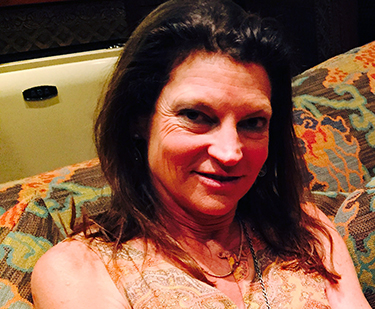
Melinda Goldrich
Melinda Goldrich continued her family’s tradition of philanthropy by hosting a special event to introduce a new audience in Aspen, Colo., last night to the work of USC Shoah Foundation.
Goldrich is second generation Holocaust survivor whose father, Jona Goldrich, gave his testimony to the Visual History Archive. Jona was born in Poland and fled to Czechoslovakia and then Hungary before immigrating to Palestine with his brother. Another brother and both his parents were murdered in concentration camps. In the 1950s, he moved to Los Angeles and became a successful real estate developer. He later founded the Goldrich Family Foundation for philanthropy.
Melinda Goldrich knew about her father’s past and even appears in his testimony, but it wasn’t until this January that she was introduced to the current work of USC Shoah Foundation. She went to Poland for the 70th anniversary of the liberation of Auschwitz on the Auschwitz: The Past is Present program and was inspired to visit the Institute in Los Angeles after the trip to learn more about IWitness, New Dimensions in Testimony and other programs.
Goldrich said she was impressed by how much the Institute has changed and grown since its early days. She said she is most committed to the Institute’s efforts to capture survivors’ testimonies and use them in innovative and exciting educational programs, so that future generations are interested in learning about the Holocaust.
“My father is an 88 year old survivor and I’m realizing how little time is left to get firsthand information from survivors,” Goldrich said. “From my experiences in traveling, you find out there are people without knowledge or understanding of [the Holocaust] whether they’re educated people or not.”
In the decades immediately after the Holocaust, methods of teaching about it were somewhat un-inspirational, Goldrich recalled. It mostly consisted of showing black and white photographs and newsreels while emphasizing the number of people who were killed. But now, with programs like IWitness, students can get a much more personal understanding of how genocide affects real people, even when there are no survivors to meet in person.
“Now it’s presented as being about people, not numbers,” she said. “Not everybody’s going to have a Holocaust survivor in their family or in their community to relate it to, so you need organizations like USC Shoah Foundation to provide that for everybody else.”